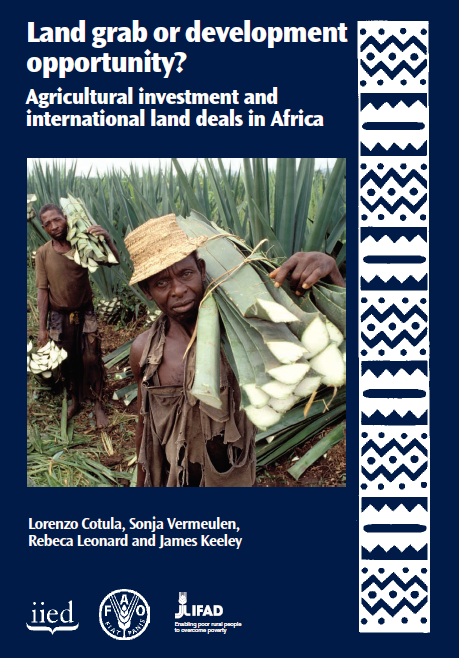Over the past 12 months, large-scale acquisitions of farmland in Africa, Latin America, Central Asia and Southeast Asia have made headlines in a flurry of media reports across the world. Lands that only a short time ago seemed of little outside interest are now being sought by international investors to the tune of hundreds of thousands of hectares. And while a failed attempt to lease 1.3 million ha in Madagascar has attracted much media attention, deals reported in the international press constitute the tip of the iceberg. This is rightly a hot issue because land is so central to identity, livelihoods and food security.
Despite the spate of media reports and some published research, international land deals and their impacts remain still little understood. This report is a step towards filling this gap. The outcome of a collaboration between IIED, FAO and IFAD, the report discusses key trends and drivers in land acquisitions, the contractual arrangements underpinning them and the way these are negotiated, as well as the early impacts on land access for rural people in recipient countries. The report looks at large-scale land acquisitions, broadly defined as acquisitions (whether purchases, leases or other) of land areas over 1,000 ha. While international land deals are emerging as a global phenomenon, this report focuses on sub-Saharan Africa.
The report draws on a literature review; on qualitative interviews with key informants internationally; on national inventories of approved and proposed land acquisitions since 2004 in five African countries (Ethiopia, Ghana, Madagascar, Mali and Sudan), as well as qualitative case studies in Mozambique and Tanzania; and on legal analysis of applicable law and of a small sample of land deals.
Land Grab or Development Oppotunity_IIED

